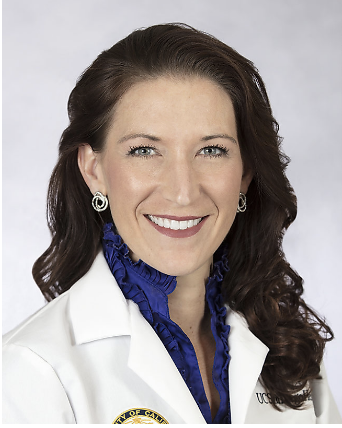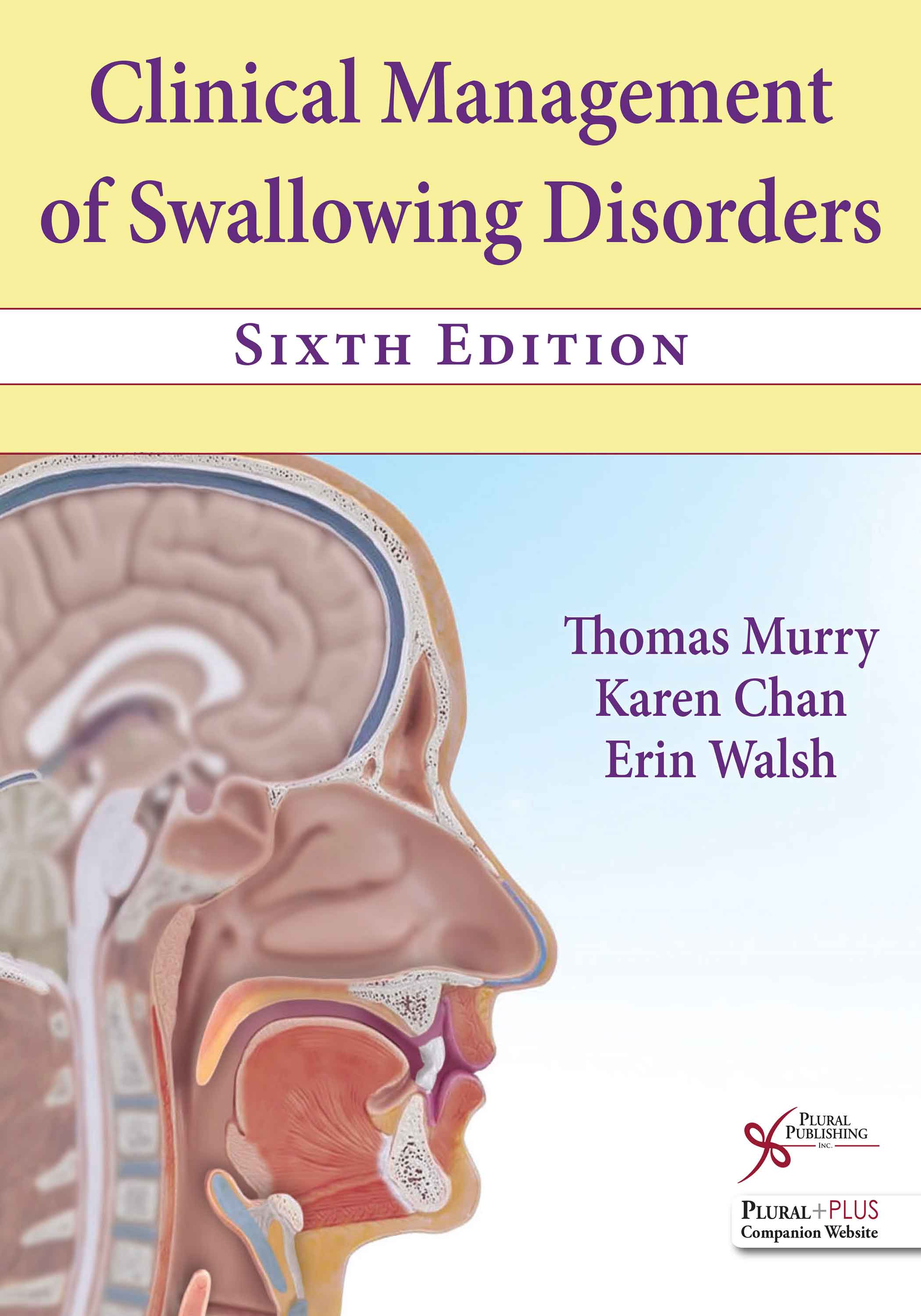
Clinical Management of Swallowing Disorders
Sixth Edition
Thomas Murry, Karen Chan, Erin Walsh
Details: 377 pages, Full Color, Hardcover, 8.5" x 11"
ISBN13: 978-1-63550-756-0
© 2026 | Available
For Instructors
Purchase
With additional full-color images, videos, and case studies, Clinical Management of Swallowing Disorders, Sixth Edition is an essential graduate-level textbook for speech-language pathology programs that examines the diagnosis and treatment of swallowing disorders across the lifespan. The text emphasizes team management, evidence-based practice, swallowing safety, nutrition, behavioral treatments, and management by speech-language pathologists after surgical options. Chapters cover the essential topics and emphasize the significance of proper assessments and treatments to improve a patient’s dysphagia and quality of life. The new edition addresses the importance of early intervention and role of speech-language pathologists in managing swallowing disorders. The text has been revised to include involvement in research, teaching, and clinical practice related to swallowing disorders from infancy to aging.
New to the Sixth Edition
- New co-author, Erin Walsh, MA, CCC-SLP, IBCLC, BCS-S, presents a fresh perspective on infant feeding and swallowing
- Patient vignettes in each chapter highlight the personal impact of health conditions
- Additional tables have been added to coincide with anatomical images
- Discussion of evidence-based methods in the use of electrical stimulation and cortical neuromodulating treatment
- Emphasis on new evidence demonstrating the importance of early intervention and aggressive treatment of dysphagia in infants and aging patients
- Outcome data highlighting the importance of proactive measures in managing aspiration risks
- Updated list of diseases with their associated swallowing problems accompanied with video examples
- Enhanced glossary with new terms and expanded explanations as they relate to swallowing and other diseases
Key Features
- Full-color layout and illustrations
- Case studies, clinical tips, clinician’s roles, areas of emphasis, and key learning points appear throughout the chapters
- Videos with examples of normal swallowing and patients with swallowing disorders
- Discussion questions and answers for each chapter
- Bolded and boxed key terms throughout with an end-of-book glossary
- Multiple appendices feature helpful tests and tools for clinicians
ALSO AVAILABLE! Clinical Management of Swallowing Disorders Workbook, Sixth Edition
The companion study workbook contains true/false, multiple choice, and fill-in-the-blank questions, along with study topics related to each chapter of the textbook.
PluralPlus Online Ancillaries
For instructors: PowerPoint Slides, Test Bank, And More
For students: Videos, eFlashcards, Appendices
Preface
Acknowledgments
Video List
Chapter 1. Introduction to and Epidemiology of Swallowing Disorders
Introduction
Need for Early Intervention
Epidemiology
Biomedical Ethics: Principles and Practices
Summary
Discussion Questions
Study Questions
References
Chapter 2. Anatomy and Physiology of the Swallowing Mechanism
Introduction
Central Nervous System
Peripheral Nervous System
Anatomy of the Swallowing Mechanism
The Normal Swallow
Cranial Nerves Involved in Swallowing
Sphincters
Central Neural Control of Swallowing
Respiration and Deglutition
Summary
Discussion Questions
Study Questions
References
Chapter 3. Swallowing Disorders Arising From Neurological Disorders and Other Diseases
Introduction
Neurological Disorders
Swallowing Disorders Found in Critical Care Patients
Esophageal Swallowing Disorders
Infectious Diseases
Medications and Swallowing Disorders
Autoimmune Disorders and Diseases
Anterior Cervical Spine Disorders
Summary
Discussion Questions
Study Questions
References
Chapter 4. Swallowing Disorders Following Surgical Treatments of Head and Neck
Introduction
Neoplasms
Head and Neck Surgery
Laryngeal Surgery
Skull Base Surgery
Tracheotomy
Swallowing Disorders Following Radiation Therapy
Zenker Diverticulum
Summary
Discussion Questions
Study Questions
References
Chapter 5. Clinical Evaluation of Swallowing Disorders
Introduction
Evidence-Based Practice
Multidisciplinary Dysphagia Team
Swallowing Screening
Clinical Swallow Evaluation
Self-Assessments
Related Self-Assessments to Dysphagia
Summary
Discussion Questions
Study Questions
References
Chapter 6. Instrumental Evaluation of Swallowing Disorders
Introduction
Flexible Endoscopic Evaluation of Swallowing
Modified Barium Swallow
Modified Barium Swallow, Flexible Endoscopic Evaluation of Swallowing, and Silent Aspiration
Manometry and High-Resolution Manometry
Tongue Pressure/Strength Measurement
Other Instrumental Tests Associated With Swallowing Disorders
Summary
Discussion Questions
Study Questions
References
Chapter 7. Treatment of Swallowing Disorders
Introduction
Evidence-Based Practice
Multidisciplinary Approach to Swallowing Therapy
Oral Hygiene
Compensatory Swallowing Therapy
Rehabilitative Swallowing Therapy
Prophylactic Swallowing Therapy for Head and Neck Cancer Survivors
Other Swallowing Treatment Methods
Summary
Discussion Questions
Study Questions
References
Chapter 8. Nutrition and Diets
Introduction
Dietitian and Dysphagia
Properties of Liquids and Foods
Oral Nutrition and Dysphagia Diets
Nonoral Diets
Malnutrition and Dehydration
Summary
Discussion Questions
Study Questions
References
Chapter 9. Swallowing in the Aging Population
Introduction
Aging Process Related to Swallowing
Changes in Swallowing
Nutrition in the Aging Population
Dementia
Feeding Assistance
Ethical Considerations
Summary
Discussion Question
Study Questions
References
Chapter 10. Early Feeding: A Collaborative Approach to Optimize Human Milk Intake
Introduction
Multidisciplinary Care Team
Lactation
Prematurity
Family Goals for Feeding
Caring for Diverse Families
Weaning
Cross-Disciplinary Educational Opportunities
Summary
Discussion Questions
Study Questions
References
Chapter 11. Pediatric Dysphagia: Assessment of Disorders of Swallowing and Feeding
Introduction
Etiologies
Epidemiology
Feeding Versus Swallowing
Prematurity
Milk to Solids
Taking a Case History
Intellectual Development
Summary
Discussion Questions
Study Questions
References
Chapter 12. Treatment of Feeding and Swallowing Disorders in Infants and Children
Introduction
Swallowing Phases
Collaborative Goal Setting
Growth Faltering
Nonoral Feeding
Case Illustrations Within Diagnoses
Support for Families
Summary
Discussion Questions
Study Questions
References
Chapter 13. Case Studies
Introduction
Diagnosis
Instrumentation
Personnel
Facilities
Case Studies From Voice and Swallowing Centers
Summary
Discussion Questions
Study Questions
References
Glossary
Appendix 1. Reflux Symptom Index (RSI)
Appendix 2. Reflux Finding Score (RFS)
Appendix 3. Burke Dysphagia Screening Test
Appendix 4. The MD Anderson Dysphagia Inventory
Appendix 5. Eating Assessment Tool (EAT-10)
Appendix 6. Dysphagia Handicap Index (DHI)
Appendix 7. Voice Handicap Index-10 (VHI-10)
Appendix 8. Clinical Swallowing Examination Sample Form
Answers to Study Questions
Index
Clinical Management of Swallowing Disorders, Sixth Edition comes with access to supplementary student and instructor resources on a PluralPlus companion website.
The companion website is located at: https://www.pluralpublishing.com/publication/ald4e
STUDENTS:
The student resources include Videos, eFlashcards and the Appendices from the text.
To access the student resources, you must register on the companion website and log in using the access code located in the front of your textbook.
INSTRUCTORS:
The instructor resources include PowerPoint Slides, Test Bank, and Animations. You will also have access to all of the student resources listed above.
To access the instructor resources, you must contact Plural Publishing, Inc. to be verified as an instructor and receive your access code.
Email: instructormaterials@pluralpublishing.com
Tel: 866-758-7251 (toll free) or 858-492-1555
*Note for students: If you have purchased this textbook used or have rented it, your access code will not work if it was already redeemed by the original buyer of the book. Plural Publishing does not offer replacement access codes for used or rented textbooks.
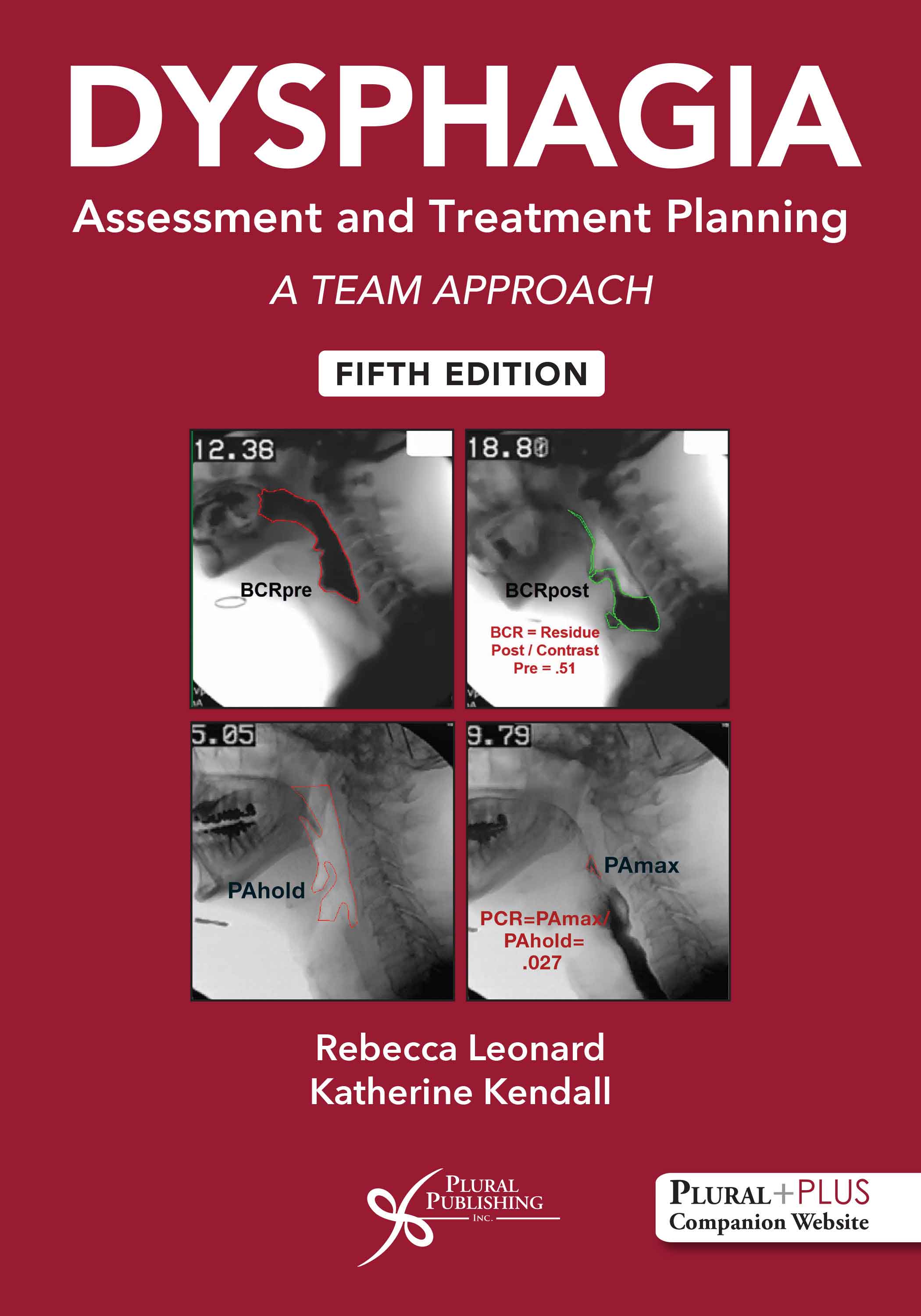
Dysphagia Assessment and Treatment Planning: A Team Approach
Fifth Edition
Rebecca Leonard, Katherine Kendall
Details: 481 pages, Full Color, Hardcover, 7" x 10"
ISBN13: 978-1-63550-473-6
© 2025 | Available
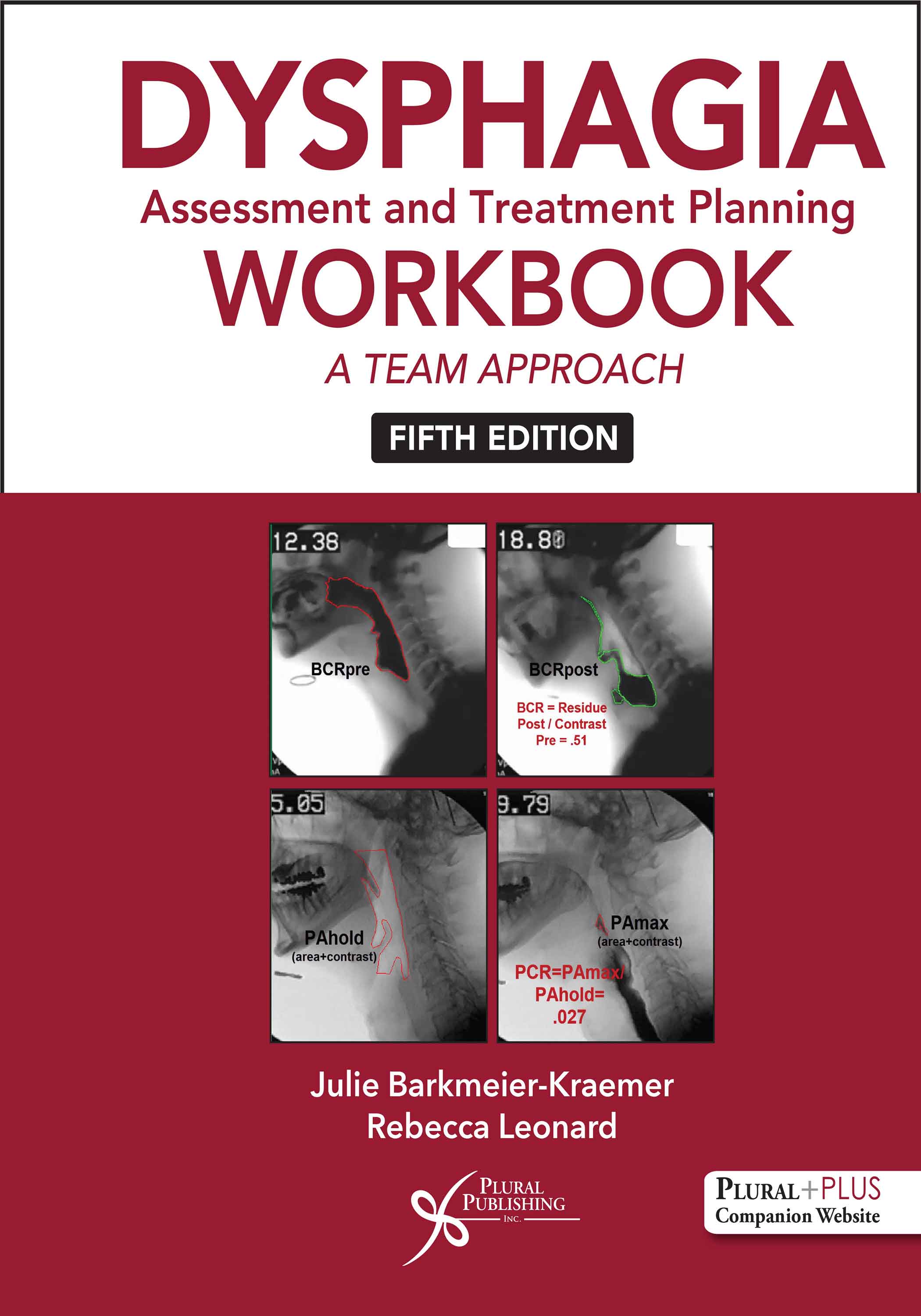
Dysphagia Assessment and Treatment Planning Workbook: A Team Approach
Fifth Edition
Julie Barkmeier-Kraemer, Rebecca Leonard
Details: 275 pages, B&W, Spiral, 8.5" x 11"
ISBN13: 978-1-63550-496-5
© 2025 | Available
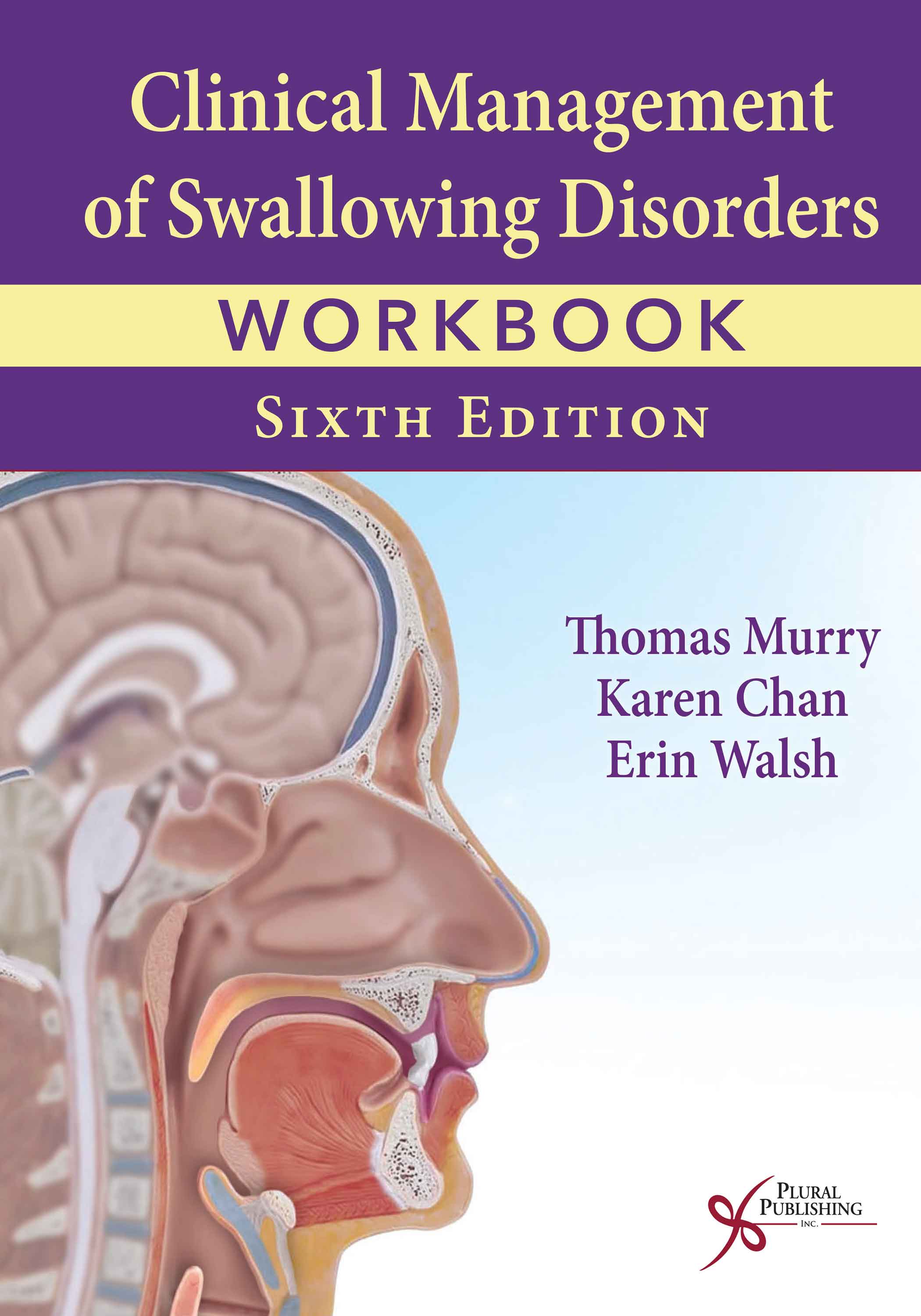
Clinical Management of Swallowing Disorders Workbook
Sixth Edition
Thomas Murry, Karen Chan, Erin Walsh
Details: 160 pages, B&W, Spiral Bound, 8.5" x 11"
ISBN13: 978-1-63550-757-7
© 2026 | Available



